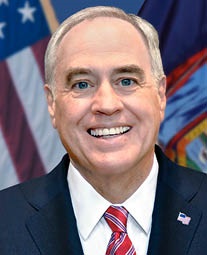Reports
New York City's Uneven Recovery: Youth Labor Force Struggling
More than two years after the height of the COVID-19 pandemic in New York City, young people are still facing double-digit unemployment. There are currently over 70,000 unemployed young workers in the City, nearly two times as many as in 2019. Young men are struggling the most with nearly 24% remaining unemployed, significantly higher than in the rest of New York State and the nation.
New Yorkers in Need: A Look at Poverty Trends in New York State for the Last Decade
New York had the 13th highest poverty rate among states in 2021, and has surpassed the national average since 2014. These rates have been persistently higher among some groups, including children; New Yorkers of color, and those with less than a high school education. The COVID-19 pandemic prompted an expansion of the safety net by the federal government that effectively reduced poverty, and some parts of that should be continued.
Fare Revenue Considerations for the Metropolitan Transportation Authority
The Metropolitan Transportation Authority (MTA) has long faced difficulties closing projected budget gaps, which have been exacerbated by the pandemic, necessitating an unprecedented level of federal funding to maintain service operations. The MTA had been previously encouraged to examine cost and revenue efficiencies but those alone are unlikely to close the more than $2.5 billion annual gap that will remain when federal pandemic relief is exhausted in 2025, forcing the MTA to lay out savings and revenue options for its stakeholders to consider.
MTA Revenue Comparison and Trends - Charts
New York's Labor Force: Assessing 10-Year Trends and Pandemic Setbacks
New York’s labor force is one of the nation’s largest, but it decreased by 1% between 2011 and 2021 while the rest of the nation increased by 5.1%. DiNapoli’s report assess the pandemic's impact and long-term trends in the workforce, including by age, education level, race and ethnicity, disability, and unionization status. While New York’s labor force is large, diverse and well-educated, attention should be paid to its underlying structure to attract and retain workers.
Labor Force Report - Charts
New York’s Labor Force: Assessing 10-Year Trends and Pandemic Setbacks
Local Sales Tax Collections Grew by 14% in October, November 2022
Local sales tax collections in New York state increased by 14.1% in October compared to the same month in 2021. Overall, local collections totaled $1.75 billion, up $217 million compared to the same time last year.

